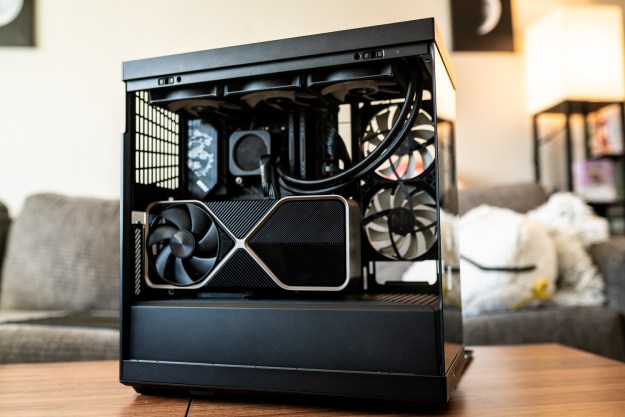PC gaming has long been thought of as something tied to… well, the PC. Duh. PC gaming is nothing without the PC, right?
Well, in a lot of ways, that’s exactly the premise the Steam Deck wants to challenge. The system is finally being shipped to eager gamers around the world, and it’s about to redefine what PC gaming might look like in the future.
A PC unlike any other

The Steam Deck is a unicorn in the PC gaming space. It’s not a device that matches any of our current definitions of what a “PC” is. It’s handheld. It’s focused squarely on gaming. And the hardware is fairly limited.
Like consoles, developers are able to target the Steam Deck’s AMD APU consisting of a Zen 2 CPU and RDNA 2 GPU. In that sense, it’s more in line with the
If you’re a desktop PC gamer like myself, that hardware won’t impress you. My latest build has an AMD Ryzen 7 3700X CPU, 32GB of DDR4-3200
You won’t find yourself editing spreadsheets on the Steam Deck any time soon.
But PCs aren’t just about hardware. Yes, my rig plays current AAA games at a 1440p resolution. But it also handles video editing in Da Vinci Resolve, my freelance writing on the side — and yeah, I can file my taxes on it too. That’s the beauty of the PC.
You won’t find yourself editing spreadsheets on the Steam Deck any time soon. Without killer hardware and multi-purpose functionality, the Steam Deck lacks two of the most attractive things about PC gaming.
What is left, however, is Steam itself. It’s the kernel of PC gaming that can continue on when you are many miles away from your desk. And that’ll be key to the future of PC gaming.
Steam on the go

Gaming is rapidly pushing toward an important inflection point. The initial success of cloud
You might even think we’re heading toward a future where owning true gaming hardware will be a thing of the past. Ardent PC gamers might scoff at the idea, but the painful drawn-out GPU shortage has made cloud gaming even more attractive.
If PC gaming is going to continue to thrive, it’s imperative that it extend beyond the bounds of traditional gaming PCs. And that’s where a platform like Steam comes in.
The Steam Deck doesn’t need to compete with consoles to be a success.
Unlike consoles, the Steam Deck has access to nearly the entire Steam library of over 50,000 games. That means you can play much older titles like Counter-Strike: Global Offensive and the original Quake — or recently released titles like Destiny 2: The Witch Queen. Granted, many of them have to run on the Proton compatibility layer since most games are compiled strictly for Windows, but the possibility is still there. And if the Steam Deck becomes an unbridled success, you better believe developers will be racing to optimize their games.
It’s going to take a long time for Game Pass’ measly list of 100 games to ever get close to Steam. It’s all there at your fingertips — no monthly fees required.
It’s not that the Steam Deck needs to compete with consoles to be a success. It just needs to let you bring Steam gaming with you wherever you go. Yes, that’s something
The future of PC gaming is at hand

Obviously, the Steam Deck isn’t the only portable
That doesn’t mean, however, that we won’t see some competition to the Steam Deck in the future. Alienware showed off its own handheld gaming PC concept at CES 2020. And though it never came, we know gaming companies have been experimenting with the form for many years. If the Steam Deck catches on, we may see a whole wave of new handheld
That might sound fanciful at first blush. And maybe it is. But so was cloud gaming just a few years ago.
If the Steam Deck can make it work, decoupling PC gaming won’t mean the end of the PC. It can simply mean the PC games you love are available in more places. And that feels like something all PC gamers can get behind.
Editors' Recommendations
- The simple reasons HDR looks terrible on your PC
- A new standard is raising the bar for HDR on PC
- It’s time to stop ignoring the CPU in your gaming PC
- I would give up my Steam Deck if the ROG Ally 2 had these features
- The RTX 4090 is more popular on Steam than any AMD GPU




